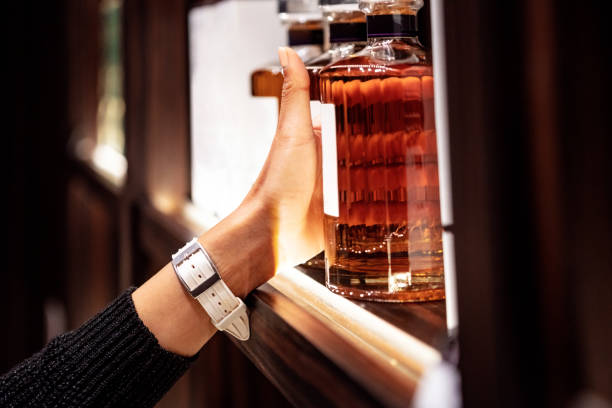In the future, edible QR codes could reveal fake whisky
Anti-counterfeit tags with QR codes are being trialled as a new kind of security measure to help reveal if the whisky you’re buying is fake.

According to researchers at Purdue University’s Weldon School of Biomedical Engineering, the edible silk tags could be a step towards identifying fake alcohol products as well as counterfeit medications.
Young Kim, associate head for research and an associate professor at the university, said: “Researchers apply alcohol to silk proteins to make them more durable. Because they tolerate alcohol, the shape of the tag can be maintained for a long time.”
Kim, who has worked on anti-counterfeit measures including cyberphysical watermarks and tags made from fluorescent silk proteins, explained that the tags have a code that a consumer can activate with a smartphone to confirm authenticity of a product.
The code on the fluorescent silk tag is the equivalent of a barcode or QR code and, according to Kim, is not visible to the naked eye. In addition, Kim revealed how the tags are also edible and do not affect the taste of the whisky, causing no issues if swallowed by consumers.
Jungwoo Leem, a postdoctoral research associate, explained how the team has begun processing fluorescent silk cocoons from specialised silkworms to create a biopolymer, which can be formed into a variety of patterns to encode the information.
Partner Content
Leem insisted: “Alcohol spirits are vulnerable to counterfeiting. There are a lot of fake whiskies being sold.”
Kim added: “Counterfeit items, such as medicines and alcohol, are big issues around the world. There are numerous examples of large amounts of fake medications sold throughout the world, which, in some instances, kill people. This work is extremely important. You can use your smartphone to authenticate.“
As part of the trial, the researchers placed tags in various brands and pricepoints of whisky over a 10-month period and were able to continually activate the tags and codes with a smartphone app in a variety of light settings.
The tags are an additional authentication mechanism for marked safety seals on bottles and could help by being placed in expensive bottles of alcohol to remove the issue of counterfeiting and offer consumers reassurance.
The study continues and appears in ACS Central Science, with additional input from Kumoh National Institute of Technology and the National Institute of Agricultural Sciences, both in South Korea, and Purdue as more trials continue.
Related news
Beer sector in India invests in Uttar Pradesh
What the doctor ordered: China’s burnt-out youth mix traditional medicine and cocktails




